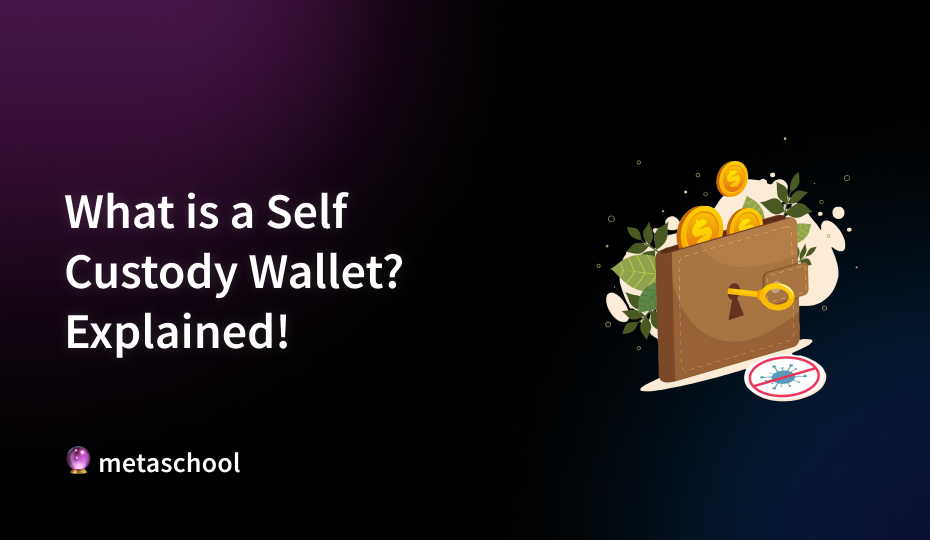Table of Contents
In the world of digital finance, the way we store and manage our assets is rapidly evolving. With the rise of cryptocurrencies and blockchain technology, traditional methods of asset custody are being redefined. An advancement in regular wallets is allowing individuals to take direct control of their funds, offering a level of autonomy and ownership previously unheard of in the financial sector — a self custody wallet.

This shift represents more than just a technological advancement—it’s a fundamental change in how we think about financial independence and security. This article explores one of the key innovations driving this transformation, shedding light on its impact and significance in today’s decentralized economy.
What is a Self Custody Wallet?
A self custody wallet is a digital wallet that allows you to have complete control over your cryptocurrencies and other digital assets, such as NFTs. Unlike custodial wallets, where third-party entities (like banks, exchanges, or service providers) manage and secure your assets on your behalf, self custody wallets put the responsibility of managing private keys — and therefore access to your funds — entirely in your hands. This approach provides true ownership and autonomy, ensuring that no intermediary can restrict, freeze, or misuse your assets.
How does it work?
At the heart of every cryptocurrency wallet lies the concept of cryptographic keys, which are essential for managing and securing digital assets. These keys work together to ensure the safe transfer and storage of cryptocurrency.
- Public Key functions like a bank account number, allowing others to send assets to your wallet. It is derived from the private key and can be shared publicly without compromising security.
- Private Key acts as your wallet’s password, granting access to your funds and enabling you to authorize transactions. It must be kept secure and confidential, as losing it means losing access to your wallet and funds permanently.
In a self-custody wallet, the private keys are stored locally on your device or securely backed up by the user. Unlike custodial wallets, where a third party holds your keys, self-custody wallets ensure that only you have control over your assets. This setup eliminates the reliance on intermediaries, offering greater autonomy and security.
When you initiate a transaction using a self-custody wallet, the transaction is signed with your private key and directly broadcast to the blockchain network. This decentralized process bypasses centralized authorities, ensuring that the transaction remains transparent, tamper-proof, and independent. By design, self-custody wallets provide full ownership and control, empowering users to manage their digital assets securely and independently.
Benefits of Using a Self Custody Wallet
Self custody wallets are favored for their ability to empower users with full control over their funds. Here is why it may be a good idea to use them:
1. True Ownership
When you use a self custody wallet, you hold the private keys to your funds. This means no third party can restrict access or interfere with your assets. It’s similar to owning physical cash — you control it entirely, but you’re also responsible for safeguarding it.
2. Enhanced Security
Unlike custodial wallets, self custody wallets eliminate risks such as:
- Bankruptcy or Fraud: If an exchange or custodian goes bankrupt, your funds could be lost or locked.
- Hacking Risks: Centralized services are frequent targets for cyberattacks, whereas self custody wallets reduce such risks by decentralizing control.
3. Permissionless Access
Self custody wallets allow you to interact directly with blockchain networks without needing approval from any institution. This is particularly valuable in regions where financial systems are unreliable or overly restrictive.
4. Support for Decentralized Applications (dApps)
Many self custody wallets, like MetaMask and Trust Wallet, allow seamless access to decentralized applications. This enables users to participate in DeFi (Decentralized Finance), NFT marketplaces, and other blockchain-based services directly.
Types of Self Custody Wallets
Self custody wallets come in various forms, catering to different needs and preferences:
1. Software Wallets
- These are applications installed on devices like smartphones or computers.
- Examples: MetaMask, Trust Wallet, and the Bitcoin.com Wallet.
- They are convenient for everyday transactions but require secure device management.
2. Hardware Wallets
- Physical devices designed to store private keys offline.
- Examples: Ledger Nano S, Trezor.
- Ideal for long-term storage due to enhanced security against online threats.
3. Paper Wallets
- Consist of printed documents containing a wallet’s private and public keys.
- While secure from hacking, they are prone to physical damage or loss.
Risks and Responsibilities
With great power comes great responsibility. Self custody wallets demand careful handling because the responsibility of securing private keys lies entirely with the user. If you lose your private keys or recovery phrase, you could permanently lose access to your funds. Here are some risks to consider:
- Loss of Access: Without a proper backup of your recovery phrase, regaining access to your wallet is impossible.
- Human Error: Mistakes like sending funds to the wrong address or exposing private keys can lead to irretrievable losses.
- Device Theft or Compromise: Ensure your devices are secure to prevent unauthorized access.
Use Cases of a Self-Custody Wallet

Self custody wallets demand careful handling because the responsibility of securing private keys lies entirely with the user. If you lose your private keys or recovery phrase, you could permanently lose access to your funds. Here are some risks to consider:
1. Securely Store Crypto Assets
With a self-custody wallet, users can store their cryptocurrencies with unmatched security. Unlike custodial wallets that require you to trust a third-party platform, self-custody wallets keep your private keys in your possession, ensuring you have sole control over your funds. Advanced wallets like the BitPay Wallet provide easy backups and industry-leading security, allowing you to manage multiple wallets and tokens from one platform while supporting multichain functionality.
2. Buy Cryptocurrency
Self-custody wallets enable users to purchase crypto directly from within the app. Platforms like BitPay offer competitive prices on popular cryptocurrencies, such as Bitcoin, Ethereum, Litecoin, Dogecoin, and more. They also support payment methods like credit cards, debit cards, Apple Pay, and Google Pay, ensuring seamless and near-instant purchases without excessive fees or markups.
3. Swap Cryptocurrencies
Swapping one cryptocurrency for another is simple with self-custody wallets. Many wallets provide built-in features to exchange assets securely and at competitive rates. For example, BitPay’s “Swap” feature allows users to exchange cryptocurrencies directly from the app, ensuring a quick and smooth transaction process.
4. Transfer, Send, and Receive Crypto
Self-custody wallets allow users to move, send, or receive cryptocurrencies globally without intermediaries. Transactions can be conducted securely between wallets, and users can even transfer funds between devices by exporting or importing wallet keys. This flexibility ensures that users can seamlessly manage their crypto across multiple platforms and devices.
5. Pay with Cryptocurrency
Self-custody wallets make it easy to use cryptocurrencies for payments. Users can:
- Send funds directly to another wallet.
- Buy gift cards with crypto for various retailers.
- Load a crypto debit card for convenient spending.
- Shop with merchants that accept crypto payments.
According to some statistics, self-custody wallets like the BitPay Wallet offer higher payment success rates compared to exchange wallets, providing a smoother and more reliable payment experience.
How to Use a Self Custody Wallet Safely
- Backup Your Recovery Phrase: Write down your wallet’s recovery phrase (usually 12-24 random words) and store it in a safe, offline location.
- Enable Security Features: Use strong passwords, two-factor authentication, and encryption to protect your wallet.
- Avoid Sharing Private Keys: Never share your private keys or recovery phrase with anyone, not even customer support.
- Stay Updated: Regularly update wallet software to benefit from security enhancements.
Popular Self Custody Wallets
Here are some trusted self custody wallets:
- MetaMask: A browser-based wallet for Ethereum and EVM-compatible blockchains.
- Trust Wallet: A mobile wallet supporting multiple cryptocurrencies and blockchains.
- Bitcoin.com Wallet: A versatile wallet for Bitcoin, Ethereum, and other assets.
- Ledger Nano: A hardware wallet ideal for secure long-term storage.
Self Custody Wallet vs. Custodial Wallet
| Feature | Self-Custody Wallet | Custodial Wallet |
|---|---|---|
| Control | You control private keys. | Third-party controls private keys. |
| Security | Higher security if managed properly. | Lower security; vulnerable to hacks. |
| Access | Permissionless; you control transactions. | Requires intermediary approval. |
| Ease of Use | May require technical knowledge. | User-friendly with recovery options. |
| Risk of Loss | High if keys or recovery phrase are lost. | Funds may be recoverable by provider. |
Conclusion
Self custody wallets are revolutionizing the way individuals manage their digital assets by offering complete control and true ownership. Unlike custodial wallets, where third parties like banks or exchanges hold the keys to your funds, self custody wallets empower you to manage your assets independently, ensuring no one can restrict or interfere with your financial decisions.
Throughout this article, we’ve explored how self custody wallets work, their various types, and their advantages in providing security, autonomy, and access to decentralized applications. We’ve also discussed the responsibilities that come with using these wallets, highlighting the importance of safeguarding private keys and recovery phrases to prevent loss.
As cryptocurrencies and blockchain technology continue to reshape the financial landscape, self custody wallets represent a vital tool for anyone looking to participate in this decentralized revolution. While they require careful management, the benefits of freedom, security, and direct access to blockchain networks make them an essential part of the digital economy.
Related Reading:
- How to Setup a Wallet
- 15 WalletConnect Compatible Wallets ( Steps to Setup WalletConnet)
- Address
- How to add or change a MetaMask network on your wallet (Updated 2024)
FAQs
What is a Self Custody Wallet?
A self custody wallet is a digital wallet that allows you to have complete control over your cryptocurrencies and digital assets. Unlike custodial wallets provided by banks or exchanges, self custody wallets let you hold the private keys to your wallet. This means you are solely responsible for securing and managing your funds, providing true ownership without relying on intermediaries.
Is MetaMask a Self Custody Wallet?
Yes, MetaMask is a self custody wallet. It allows users to store their private keys and control their digital assets independently. MetaMask does not have access to your funds or private keys, making it a secure option for managing cryptocurrencies and interacting with decentralized applications (dApps).
Is Trust Wallet Self Custody?
Yes, Trust Wallet is a self custody wallet. It enables users to store their private keys locally on their devices, ensuring that they maintain full control over their cryptocurrencies and other digital assets. Trust Wallet does not hold or access your funds.
Is Blockchain.com a Self Custody Wallet?
Yes, Blockchain.com offers a self custody wallet option. In its non-custodial wallet feature, users control their private keys and maintain full access to their funds. However, Blockchain.com also provides custodial services, so it’s essential to distinguish which wallet type you are using within their platform.
